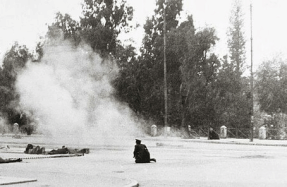


During the First World War, a conflict not noted for its generalship, one group of individuals stands out. Five of the senior leaders of the French army in 1918 had one thing in common – they had all taught at the army’s staff college before the war. This small group of fighting professors, ably supported by senior and mid-ranking officers, many of whom had been their pupils, led the French army to victory in 1918.
At Morhange in August 1914 Ferdinand Foch, then a 62-year-old army corps commander, directed troops in battle for the first time. It was, potentially, the climax of a career in which he had studied and taught war while a lecturer in strategy and tactics at the École supérieure de guerre, France’s staff college and, subsequently, become its head. If he had failed, like so many French generals in the 1914 campaign, he would have been assigned to a desk job or prematurely retired. As things turned out, Foch pushed his XX Corps forwards confidently, only for its flanks to be left in the air. The corps had to be pulled back hastily, but in good order. Although his actions at Morhange were to spark controversy, Foch got lucky. His audacity got him promoted to command an army, with dynamism if not total control in the forthcoming Battle of the Marne. Covering XX Corps’ retreat were the guns of 70th Reserve Division. These just happened to be the instructional batteries of the French army’s artillery school, expertly directed by their divisional commander,






